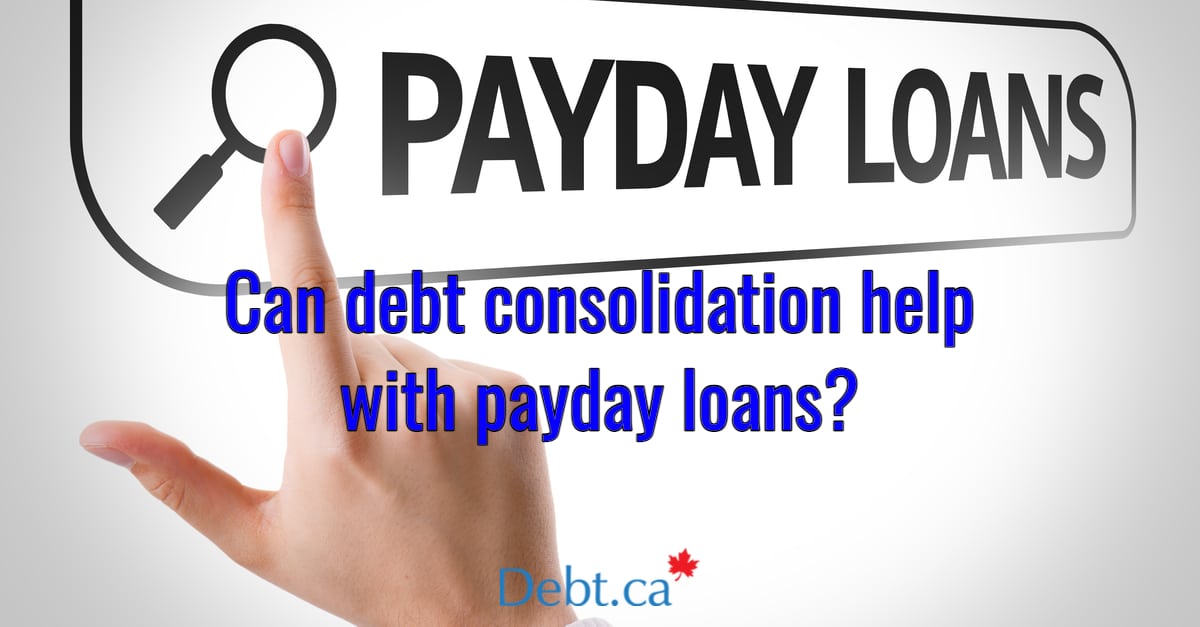Are you among the 31% of people who believe they have too much debt? A 2019 survey sited that 73.2% of Canadians have debt or use payday loans to cover expenses. The Coronavirus pandemic has been tough for a lot of Canadians, especially the most vulnerable. If you don’t qualify for the Canada Emergency Response Benefit (CERB), you could find yourself relying on payday loans to survive.
You might be considering payday loans if you’re struggling to pay your bills each month. In fact, these loans can be extremely dangerous if you’re unaware of how they work. Below are three reasons why you should not consider a payday loan unless there are no other options available to you.
What is a payday loan?
These are short-term loans between $100 and $1,500. Typically, individuals take out this type of loan from a payday lender to meet an unexpected payment. However, payday loans should not be your first option if your bank account is low on funds.
Also known as a cash advance, using a payday loan can result in long-term financial ruin. Not only can you end up with a bad credit score, but it can also keep you in a vicious cycle of ongoing debt. You can also acquire online payday loans. Depending on the loan amount, the total cost of borrowing is 75 percent of the loan or higher.
How Do Payday Loans Work?
Payday loans do not work like other personal loans. Interest and fees are applied for the short term of the loan, usually, two weeks or next paycheque, not annually. A 15% charge for a 2-week payday works out to almost 400% APR. This charge increases if you are unable to pay back this amount within a specified amount of time.
However, there are exceptions to consider. For example, there are 62 days to pay back a loan in the following provinces:
- Alberta
- British Columbia
- Manitoba
- New Brunswick
- Ontario
A payday lender can’t extend or roll over your payday loan in:
- Alberta
- British Columbia
- New Brunswick
- Nova Scotia
- Ontario
- Saskatchewan
A payday lender can’t ask you to sign a form that transfers your wages directly to them in:
- Alberta
- British Columbia
- Manitoba
- New Brunswick
- Nova Scotia
- Ontario
- Saskatchewan
When and how often a payday lender can contact you and what tactics it can use to get you to pay must adhere to laws in:
- Alberta
- British Columbia
- Manitoba
- New Brunswick
- Nova Scotia
- Ontario
- Saskatchewan
Do You Qualify For A Payday Loan?
Payday loans prey on people with bad credit, and as such, have very high-interest rates. If you’re actively trying to get out of debt, avoid payday loans at all costs. Not only are they predatory, but they only encourage you to try to borrow your way out of trouble.
Beware The Scams
Payday loans are available at brick and mortar locations or online. Make sure you are dealing with a licensed payday establishment based in Canada. Any problems that arise may be difficult to solve if they are out of the country.
Online sites may be an intermediary and only collect your personal information to pass it off to actual lenders. Giving your bank account info to a third party always comes with risks.
The Cons of Payday Loans
It’s Easy To Become Dependent On Payday Loans
What many people don’t realize is that it is incredibly easy to become dependent on payday loans. These loans are very expensive; for example, you might be charged between $21 to borrow $100, which means you’re paying back $121. However, this is only if you pay back the loan on time. Depending on how much money is borrowed, some individuals need to use their next paycheck in order to pay back the loan, meaning again they are unable to meet basic monthly payments.
As these loans are expensive, it is easy to fall into a position where you depend on them each month in order to pay bills. Because of this, it is imperative that they are taken out only in an emergency, and only if there are no other options available to you.
Payday Loans Have Incredibly High-Interest Rates
As explained above, you don’t just pay back the lender the amount that you borrowed; there is a charge on top of the amount you borrowed. This charge increases steadily if you are unable to pay back this amount within a specified amount of time. Usually, the interest rate will increase every two weeks.
For example, if you cannot pay back the loan with the 21 percent charge after two weeks, the amount will have an additional 21 percent of interest added to it, and then an additional 21 percent the next two weeks, and so on.
$100 + 21% = $121 + 21%= $146.41 + 21% = $177.16 +21% = $214.36 …
If you cannot pay back the amount in 2 months, for example, you will be paying for four rollovers. Again, because of this, it is easy to get trapped under a pile of debt, and only more payday loans can help you meet monthly payments – pushing you further into debt.
Using These Lenders Can Harm Your Credit Rating
Because these loans are so expensive and so difficult to pay off because of the high-interest rate, getting into debt is far too easy. As a result, these loans can be extremely detrimental to your credit rating. If these loans pull you into enough debt, you will no longer qualify to receive loans from reputable lenders. Additionally, it becomes more and more unlikely that you’d qualify to receive a loan for a down payment on a house or to finance a car.
It’s important to realize that payday loans are not your only option. There are lots of options out there if you need help meeting payments. First, consider cutting out unnecessary purchases and drawing out a detailed budget.
If this still doesn’t help, speak with your bank about a loan; this will still charge you interest, but at a lower rate than payday loans. Finally, there is no shame in getting a second job or asking family members for some help if you are struggling financially.
Provincial Regulations
The Covid-19 pandemic has been tough on Canadians as a whole. However, it has hit vulnerable Canadians especially hard. A lot of these vulnerable Canadians regularly rely on payday loans to survive.
Governments have enacted regulations to provide extra protection by capping interest rates and fees on payday loans. Therefore, these laws ensure that workers and families who rely on these services can keep more of their money in their pockets.
Other than Newfoundland and Labrador, every province has some legislation on payday loans.
British Columbia
- Charges cap at 17% of the principle
- A maximum of 50% of the borrower’s take-home pay can be lent
- The borrower may cancel the loan by the end of the following day
- Only one loan at a time is permissible
- Lender have limited access to borrower’s bank and employer
Alberta
- Charges cap at 15% of the principle
Saskatchewan
- 23% interest cap
- 30% cap on defaulted loans
- 50% borrowing limit
- Licensing fee $2,000 per location
Manitoba
- 17% cap for two weeks
- 5% cap for subsequent loans
Ontario
- 15% cap on loan charges
Quebec
- Limit annual interest to 35%
New Brunswick
- 15% cap on loan charges
- The borrower may cancel the loan within 48 hours
- Only 30% of borrower’s take-home pay can be lent
- Only one loan may be taken at a time
- All lenders must be licensed
Nova Scotia
- 19% cap on loan charges
Prince Edward Island
- 25% cap on charges for two weeks
Newfoundland and Labrador
- Without their own legislation, they follow federal regulation of a 60% cap.
How To Avoid Using Payday Loans
Of course, the best way to avoid getting trapped with high-interest loans is by not applying for them in the first place. Furthermore, it’s essential to realize that payday loans are not your only option. There are lots of options out there if you need help meeting payments.
Assess The Situation
First, consider cutting out unnecessary purchases and drawing out a detailed budget. Then, if you are working towards getting out of debt, build an emergency fund that you can use in place of this loan. You’ll have to decide what amount makes the most sense for you, but typically $500 to $1,000 is a great starting point. If you can work hard to save this amount, you can use this fund without going into debt when an emergency happens.
Call Your Creditors
People who are behind on payments can ask their creditors for more time to pay their bills. Before you get sent to collections, give the business a call. Ask for an extension or change your due date to better fit your pay schedule.
Find Another Money Source
If that’s not an option, always try to find another option for borrowing money, such as:
- Friends or family members
- Your church may have funds set aside for neddy parishioners
- Some apps let you access your paycheque early.
- You can go directly to your employer and ask for an advance or cash in vacation days.
- Speak with your bank or credit union about a loan; this will still charge you interest, but at a lower rate than payday loans.
- Cash advance from a credit card has better rates.
- A home equity loan
- Borrowing from retirement or life insurance may work but be wary of tax implications.
Finally, getting a second job is becoming the norm in today’s landscape. In the age of side gigs, there are many opportunities available.
In Too Deep
If you can’t find another source of money to cover the current emergency, then you probably know that your financial situation is in deep trouble. With no savings and no other credit, every purchase is going to be a struggle.
It’s easy at this point to sink deeper and deeper into debt, either by rolling over loans (using one loan to service an older one) or just taking on more of them for higher and higher interest rates.
There’s a good chance you need outside help to get your situation organized and under control.
If you’re at that stage and want to explore your options, please fill out this quick debt relief form. Then, get professional help assessing your situation and develop a step-by-step debt relief plan to help you regain control and work your way out of debt.









